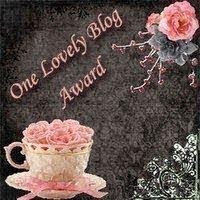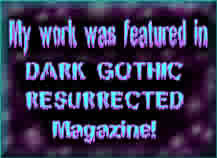This a partial list of all the books I've read (not just skimmed, ladies and gentlemen, read from cover to cover) to research my novel. I will put these books in my bibliography.
1. Writer's Guide to Everyday Life in Colonial America by Dale Taylor
2. The Name of War: King Phillips War and the Origins of American Identity by Jill Lepore
3. Red, White, and Black (4th edition) by Gary B. Nash
4. Voodoo Hoodoo Spellbook by Denise Alvarado
5. Creole Religions of the Caribbean by Olmos, Paravisini-Gerbert, and Murphy
6. Freedom Just Around the Corner by Walter A. McDougall
7. The Spells Bible by Ann-Marie Gallagher
8. Heritage of the World Civilizations (volume 2) by Kagan and Craig
Let's not forget the books I read just for "inspiration" :
9. The Crucible by Arthur Miller
10. Brown Girl in the Ring by Nalo Hopkinson (I named one of my characters "Nola" in tribute to Nalo Hopkinson!)
11. 12. and 13. The Fear Street Saga Trilogy by R. L. Stine
This list does not even cover the dozens of websites I've poured over in preparation. Before, during, and after the novel was completed I've done nothing but study King William's War, New England Native American Tribes, Puritan and Quaker religions, the Salem Witch Trials, and a host of other crap I can't think of at the moment. I eat, breathe, and sleep the 17th century. I want to be as historically/culturally accurate as I possible, which is why I've taken the time to do so much research.
And THAT is why writing historical fiction is so sucky. It's tedious. On top of that, you can't just regurgitate all the facts you learn and smear them onto the pages and expect that to work. No, sir, you got to "set the scene" as a proper writer would. You gotta weave that shit in so it looks "organic" and "natural." And THAT is the hardest part for me. Yeah, I can spew tons of useless facts about the Puritans...but so what? How does that pull the reader into the time period? When someone reads my novel, I want them to feel like they are IN the 1690s! But it is so difficult to accomplish this without resorting to info-dumping!
At times I feel like I am failing to capture the historical-ness of my story. All of my betas expressed SHOCK when I told them my characters were based on the real life historical figures who took part in the Salem Witch Trials. Am I just not getting the historical flavor in there strong enough? *headdesk* This is so hard. It really is. I'm not a history buff but I want people to take my book(s) seriously. Of course I embellish many things about the Salem Witch Trials...no one (to my knowledge) transformed into a werewolf and went on a massive killing spree. But yeah. I don't know.
*Sigh* Spare yourself the trouble and just stay away from writing historical fiction altogether. Over and out, minions. I think my brain is about to explode.
VC























2 comments:
I didn't think I was shocked. :(
But what you're saying makes sense, and it's got me thinking about how accurate romance set in the past are. Granted, my expectations aren't high, but I've been surprised before. Witching Tree felt fairly natural, although I imagined it through a lens of the middle of the 19th century as opposed to Salem.
Witching Tree, to me, read accurate to the time, and did pull me into the era. I think it's important to remember that when a reader pics up your book, they aren't picking it up because they think it will be historically accurate. They are reading the blurb on the back cover because it looks interesting, and it's YA, and it's magical realism, and they want to know more about this Tituba character, and why her eyes are glowing like a wolf's. Yes, the reader is reading in anticipation for the magic, drama, love, passion, heat, and pain. They want it, need it, and expect it from your book. THAT is why people will read Witching Tree.
So, yes. Be historically accurate. But meanwhile, while drowning in books--I better not see you on "Hoarders, Buried Alive," btw--readers read for entertainment.
Historical accuracy is important, but shouldn't be the sole focus of your story. Remember to have FUN, because that is why you write to begin with. You enjoy it. Don't lose sight of that.
*Hugs*
Post a Comment